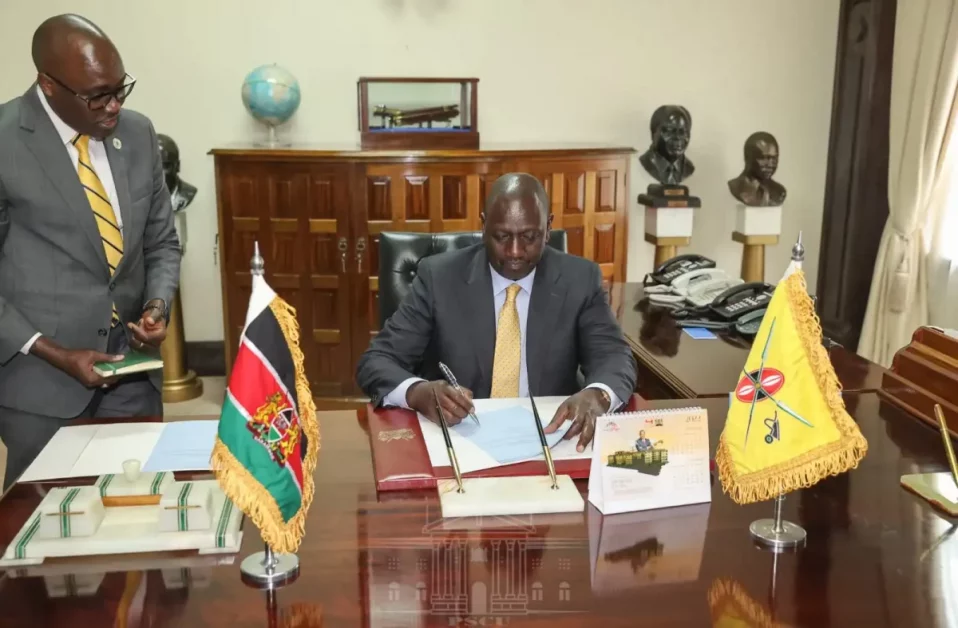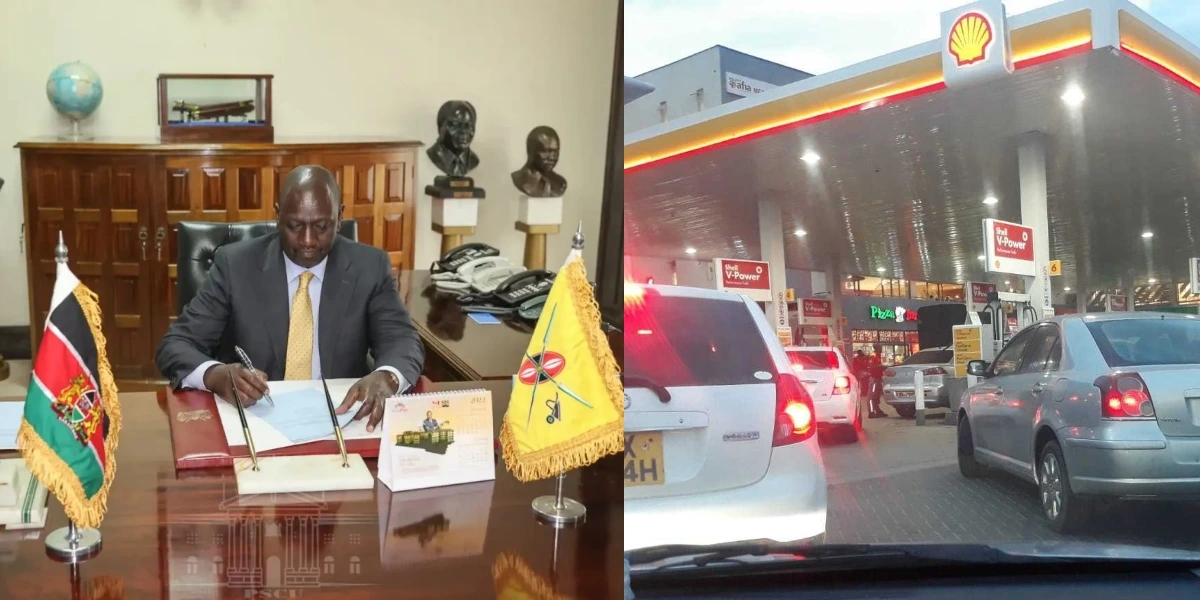President William Ruto has left citizens anxious following his stand on the fuel subsidy program, terming it a burden on the shoulders of the taxpayers who are citizens.
In his speech, the president noted that so far taxpayers have paid up to Ksh144 billion plus an added Ksh60 billion in previous months of the subsidy program.
Acknowledging that through the subsidy, an artificial shortage of the product has been witnessed and the National Treasury has been burdened heavily.

“If the subsidy continues to the end of the financial year, it will cost taxpayers Ksh280 billion, equivalent to the entire national government development budget,” he said.
As it is known the subsidy program was initiated to cushion the consumers from highly soaring fuel costs. The president says the cost of living is to be dealt with through empowering local producers.
Following the price announcement by the Energy Petroleum and Regulatory Authority (EPRA) on Wednesday, September 14, a litre of super petrol, diesel, and kerosene is to go for Ksh159.12, Ksh140.00, and Ksh127.94, respectively in Nairobi.
Kenya Pipeline Corporation (KPC) had earlier warned of a possible hike based on the failure of the exchequer to remit funds owned to oil marketers.
An issue that EPRA has commented on as possibly going to cause a tremendous effect on the fuel prices onwards. Citing that the review is capable of increasing the prices by Ksh0.54 per litre in Nairobi, Ksh0.42 per litre in Nakuru, and Ksh0.29 per litre in Kisumu.
“The pipeline capacity doesn’t directly impact the fuel as there are other dynamics such as oil and gas, not just in Kenya but internationally. The tariff doesn’t have anything to do with the supply and demand beyond the pump prices that we have,” KPC said in a statement.
Some of the challenges cited as a cause for the hikes in prices are oil marketers slowed response in picking up their products at the Kipevu Oil Storage Facility and other storage, which has thus led to a low supply amid high demand.
Kenyans are now questioning how the President plans to cushion the citizens from the increase, after deeming the subsidy an unfair burden on taxpayers.
About the Author
Kwabe Victor
Contributor
Multimedia Journalist. Aspiring documentary/Investigative journalist, currently immersed in writing Political, Business and Human Interest Stories. Speak Life.
















